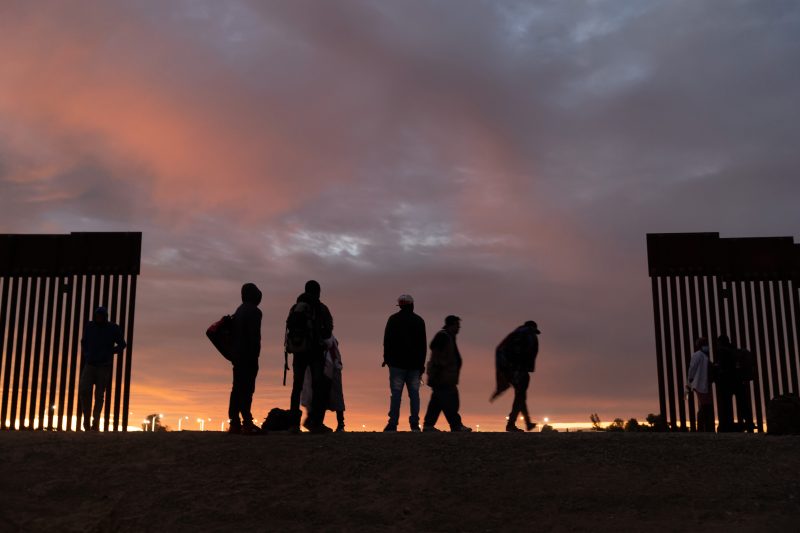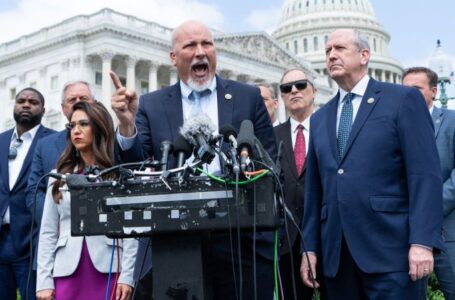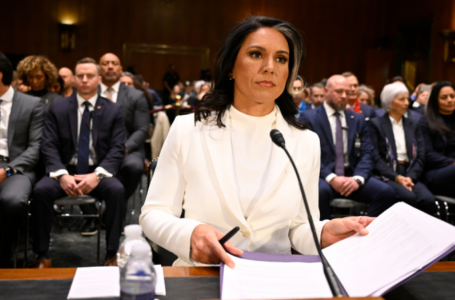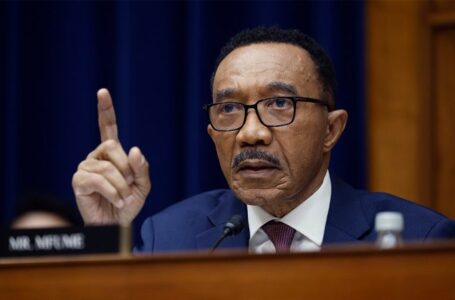GOP rebels mutiny against House leaders as Trump budget bill talks hit impasse
The border wall has never been more popular


The border crisis has caused many people to reevaluate their posture on immigration — most notably those in the Biden administration.
But perhaps the most illustrative shift in Americans’ border politics concerns the signature proposal of Biden’s predecessor: the border wall.
As border crossings and concern about the border both reach record highs, the wall is suddenly more popular than ever, it seems.
Multiple recent polls have shown support for building a wall along the southern border cresting a majority.
Late last year, it was Quinnipiac University and Fox News polling that showed between 52 and 57 percent supported its construction. On Monday, it was a Monmouth University poll that pegged support at 53 percent.
This comes after the support for the wall was mostly mired in the 30s during Donald Trump’s presidency, as Trump famously pushed for the wall and even shut down the government over it.
It’s likely that Trump’s presidency actually depressed support for the wall, since many people associated it with his unpopular brand. (It dipped in popularity during his presidency and was somewhat more popular before.)
What seems to have happened is that Trump being out of office has combined with record migrant encounters at the border and levels of concern about the situation — a two-decade-high 55 percent labeled illegal immigration a “critical threat” in a Gallup poll released Tuesday — to push support to new highs.
Each of the above polls show support for the wall higher than at any point since Trump launched his 2016 campaign. Quinnipiac showed support dropping to 47 percent last month, but even that was higher than at any point before last fall.
The numbers are also apparently unprecedented across other polls even before Trump’s foray into politics.
The Roper Center for Public Opinion Research’s archive features polling on the border wall (or a border fence) dating back to the early 1990s. The very first polls, in 1993, showed support shy of 30 percent, with two-thirds of Americans opposed.
Polling between then and when Trump took office was infrequent. It usually showed support in the 40s, but one poll — Fox News’s — showed support occasionally hitting 50 percent or more. It appears to have been the only poll to do so. And its previous high was 53 percent (in 2010) — just shy of the 57 percent it showed in October and the 54 percent in December.
The shift since Trump’s term is particularly pronounced when you drill down on independents.
At the wall’s low point in September 2017, Monmouth showed independents opposed it, 59 percent to 35 percent. Those numbers have now flipped, with independents backing it 58-40.
The rise in support for the wall also comes despite many Americans having said they didn’t think it would be particularly useful.
Quinnipiac data in 2019 showed Americans said 64-33 that the wall wouldn’t significantly reduce violent crime and 60-37 that it wouldn’t significantly reduce the flow of illegal drugs. Pew Research Center data during Trump’s term showed only about 3 in 10 Americans thought the wall would result in a “major” reduction in illegal immigration.
And it’s not clear that Americans have suddenly been convinced it would do a ton of good. Even last month, Pew data showed just 41 percent thought significantly expanding the wall would make the situation at the border better. More thought it would not make much difference (32 percent) or even make it worse (14 percent).
But increasingly, given the situation, it seems Americans are ready to try something different.











